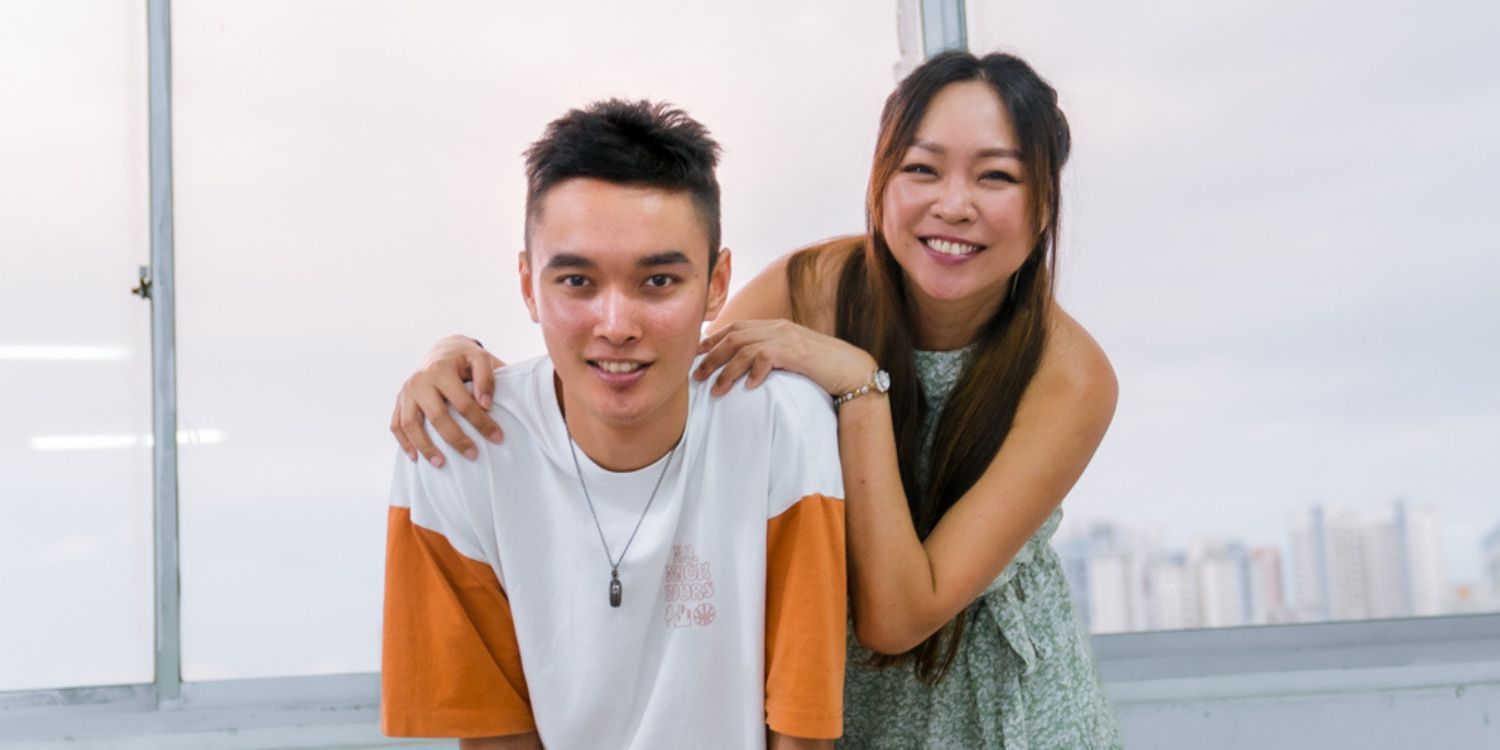Man With Autism Gets Accepted To NTU, Mum Advocates For Early Intervention
Any mother wishes the best for their child, and Freya Lim, 49, is no exception.
When Joshua Yap, 21, was diagnosed with Autism Spectrum Disorder (ASD) as a toddler, Freya decided that she’d raise him no matter what — and after years of efforts and challenges, she can now be proud.
For Joshua has been accepted to a local university, is socially active, and even tutors primary school children in badminton, one of his favourite pastimes.
All of this appeared impossible when Joshua was two, as he had developmental delays and could not utter a word.
Instead of giving up or denying his condition, she sent him for years of therapy while learning plenty herself about how to raise a child with autism.
She even continued working full-time as a video producer while taking care of Joshua so that she could continue getting him professional help.
Difficulties of being a mother to a child with autism
After her son Joshua was born, Freya Lim had recurring nightmares of being in a race.
But while other participants carried one haversack, Freya had to struggle with three. She’d also have recurring dreams about drowning underwater.
It seemed to be a metaphor for what she was going through as a caregiver to a child with autism spectrum disorder (ASD).
But these days, Freya tells MS News that the nightmares have eased. And perhaps this is because Joshua has grown up into an independent, social, and compassionate young adult.
He’s been accepted to the Nanyang Technological University (NTU) and will begin his studies when he finishes his full-time National Service in Oct 2024.
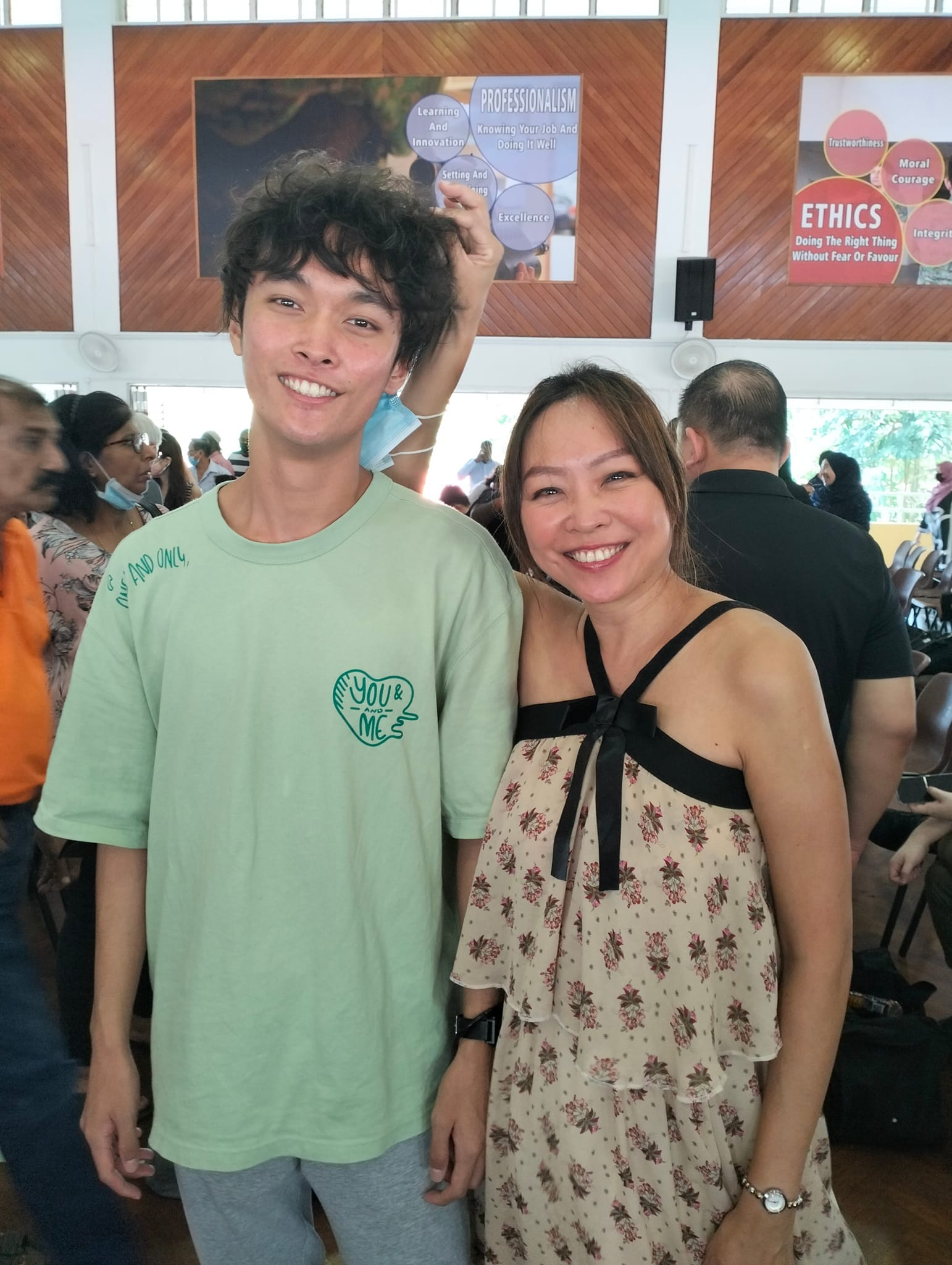
Source: Freya Lim on Facebook
Joshua has come a long way — and much of this is down to Freya’s determination to raise her son the best she can.
In-laws refused to believe he had autism, but she didn’t give up
Although most kids would begin to speak between two to three years old, Joshua had not uttered a single word yet.
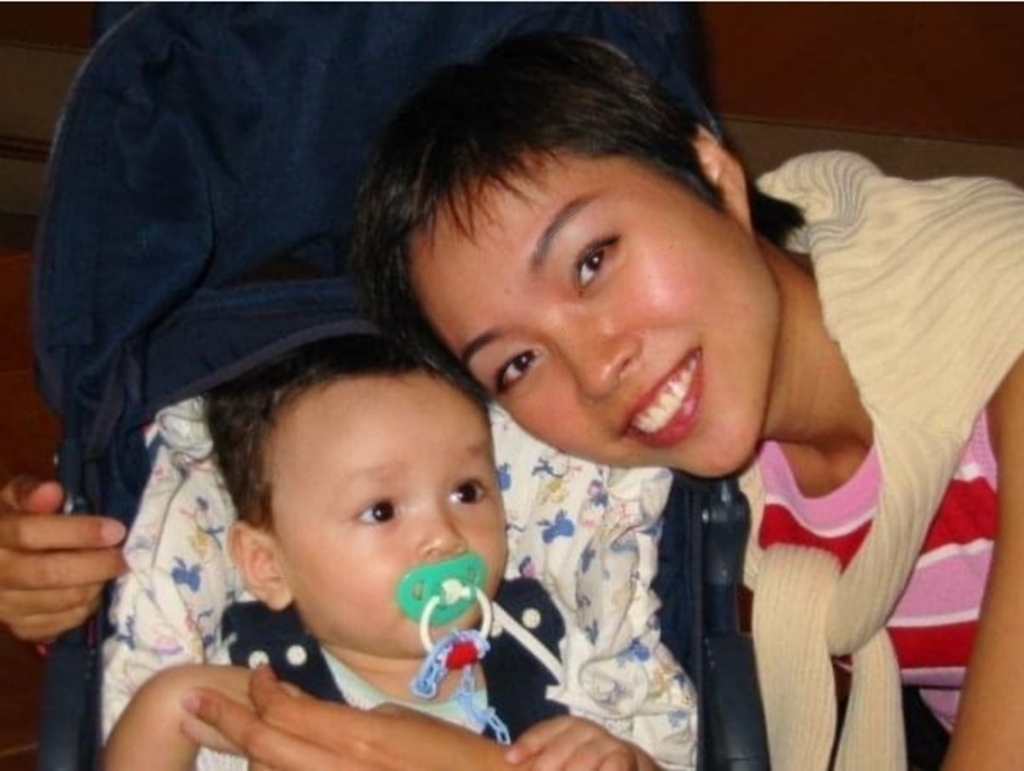
Image courtesy of Freya Lim
But Freya did not know the cause, believing he was relatively normal albeit slower to develop, until she stumbled on a Reader’s Digest article titled, “Does your child have autism?”
To her shock, as she went through the checklist, she found herself nodding at every symptom when she thought of Joshua.
One of his symptoms was making repetitive actions — he would incessantly open and close the window ledge to the point it broke. Other symptoms included:
- not making eye contact
- not making sounds
- doesn’t play with toys like normal children.
For the last point, Freya related that he used to line toys up in a straight line instead of building them together.
However, instead of offering support and understanding, Freya’s in-laws blamed her for his developmental delays and refused to believe he had autism.
Joshua also had a form of dyslexia that would cause him to write letters mirrored, which he managed to overcome later.
Despite this rejection from her in-laws, Freya did not give up. She continued seeking help for Joshua and visited a developmental clinic, where he was officially diagnosed and given therapy.
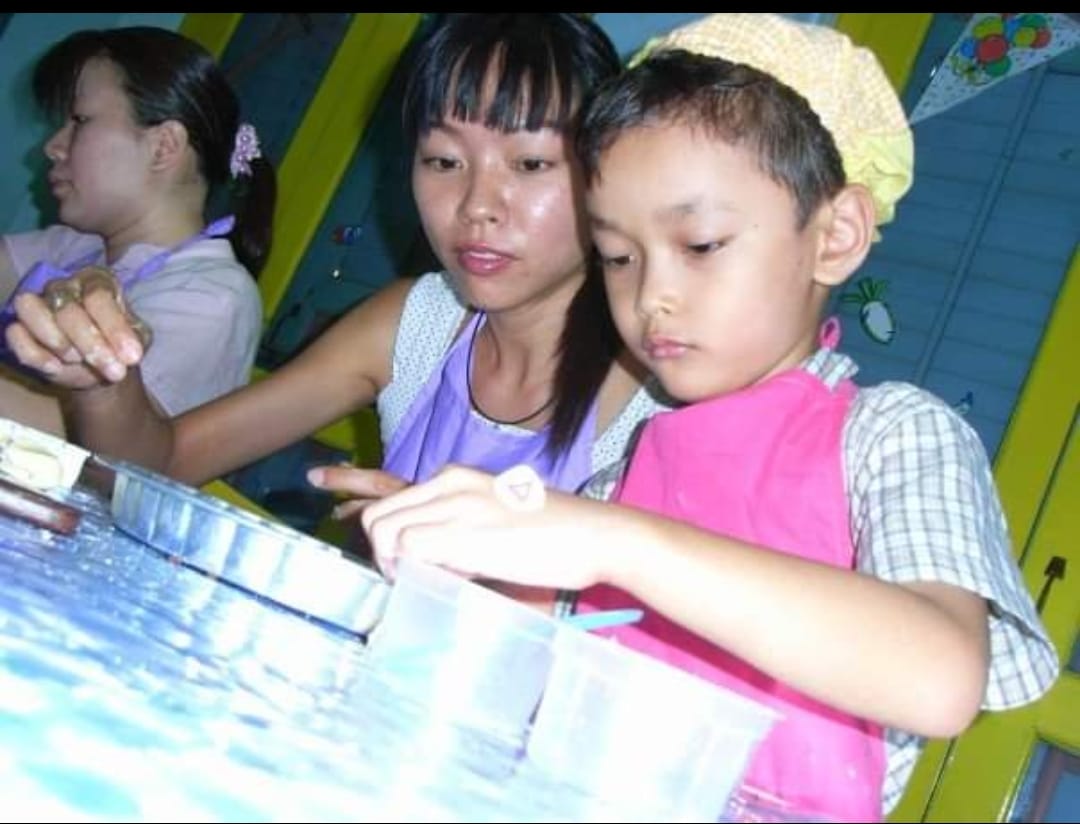
Image courtesy of Freya Lim
Efforts to integrate Joshua into society
Rather than let Joshua play with whatever toys he wanted, like action figures, she bought him kinesthetic toys, such as 3D jigsaw puzzles, many from the Science Centre, believing they’d help with his cognitive development.
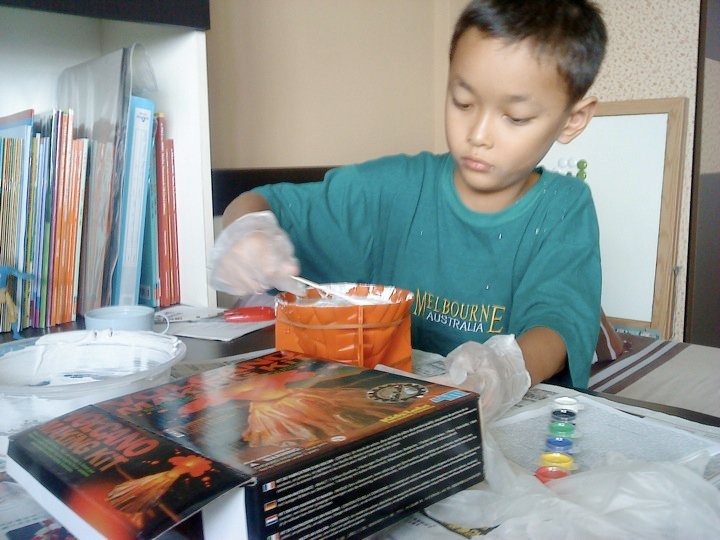
Image courtesy of Freya Lim
Two years of attending speech therapy and physiotherapy paid off, and Joshua was able to attend a mainstream school.
Such was her determination to get Joshua the best professional help that she continued to remain in her job as a video producer, despite pleas from her husband to resign.
She believed this was more effective than being a stay-at-home mum since she could continue seeking professionals to guide her in raising her son.
Freya also made sure to take him out every weekend, to the point where Joshua would eagerly ask her where they were going next.
This has made the two of them close to this day.

All of these efforts, she believes, helped Joshua to adapt to society. However, she does not believe Joshua is disabled in any way.
“Having ASD is not a disability. It’s a superpower,” she asserts.
Attending mainstream school helped Joshua learn social skills
Freya believed attending a mainstream school would help Joshua learn how others behave and teach him social skills.
Of course, this did not come without difficulties. Though his primary school knew of his ASD, his classmates were unaware.
As Joshua was quiet and had tics, he was often bullied.
Joshua simply shrugged off most of the bullying, but Freya was protective regardless. Many a call was made to parents and teachers addressing his bullying.
But other problems arose with his teachers. Once, when he stayed back in school to play with his friend, his form teacher called Freya, asking why he “wasn’t at home studying”.
Freya vehemently disagreed with her mindset. To her, school was not merely about academics. In fact, Joshua being able to play with friends, to her, was a bigger milestone than any A grades.
So she told the school not to call her anymore and let Joshua play after school if he wanted to.

Image courtesy of Freya Lim
This seemed to pay off, as Joshua managed to make friends despite his initial difficulties, and blossomed socially in secondary school. He attributes this to his friend from primary school joining him in the same school.
Overcoming stigmas of being in the Normal stream
Though Joshua was initially sad that he had to enrol in a different stream from his friends, he quickly overcame the disappointment and embraced the new start he’d been given.
With that familiarity, Joshua started performing better in the Normal (Academic) stream, to the point where teachers suggested he move to the Express stream.
But he did not take this option. Instead, after his N-levels, he enrolled in the Polytechnic Foundation Programme (PFP) at Nanyang Polytechnic, studying Medicinal Chemistry as he wished to “save the world”.
There, Joshua learned valuable skills such as public speaking, research, and how to start a business, which allowed him to pass his university interview.
Joshua did not understand why being in the N(A) stream was something people wanted to avoid. Within weeks, he had heard his classmates say they were “stupid”.
When he told Freya this one day after school, she was dismayed to hear that his classmates seemed to have been fed such notions by external sources, like their parents.
“Being in the Normal stream doesn’t make one stupid,” Freya told him. Rather, it actually allows students to learn at a pace more suited for them compared to the Express stream.
High-functioning but still has autism
Throughout his life, Joshua said he had kept his condition to himself as he preferred not to be judged for it.
The only people who are aware are his small circle of close friends, and he shares happily that they haven’t treated him differently even after they learned about his condition. With his friends, he’s able to discuss the minutiae of badminton — one of his favourite activities — and even join his polytechnic’s badminton team even though he was initially rejected.
There’s only one aspect where he feels he’s different from others — his tics. Both Freya and Joshua shared that he has sought treatment for his various tics and is now better able to control them.
So successful they’ve been at managing Joshua’s ASD that many don’t even realise he has the condition. But this isn’t always a good thing.
“My in-laws were in denial,” Freya shared. Even now, close family members would remark, “See, Joshua doesn’t have autism” when they hear of his development.
It felt to her like they were dismissive of all the efforts Freya put in to raise Joshua, and this is something she wants to emphasise.
“He may be high-functioning, but that doesn’t mean he doesn’t have autism,” she said.
Aims to help others as a social worker
Now that Joshua is grown up, Freya is setting her sights on helping others, especially caregivers of those with conditions like his.

She continues to work in what she terms a “transition job” with the Ministry of Health while attending part-time studies at the Singapore University of Social Sciences and hopes to become a social worker eventually.
“I still have some years before I retire, so I want to help others,” she shared.
Freya also volunteered previously before her schedule became taken up by her studies, but once her degree is complete, she wishes to be more active as a volunteer.
She is also open to helping others in a similar boat with their children or loved ones through direct messages on Facebook, where she shares her journey of living as a caregiver of someone with ASD.
One post became unexpectedly viral, but Freya is happy that her experience may be able to help others.
She shared that topics such as delayed gratification and how Joshua copes with NS are close to parents’ hearts. As such, she’s happy to share her experiences and believes that parents appreciate hearing from someone who has gone through what they have, even if she can’t help them.
This pushes her to continue juggling studies, work, and motherhood.
“Children with autism are the sweetest, most innocent people out there,” Freya says. And watching the mother and son interact, it’s hard to disagree.
Know more inspiring individuals like Freya and Joshua? Get in touch with us via email at news@mustsharenews.com.
Featured image by MS News.
